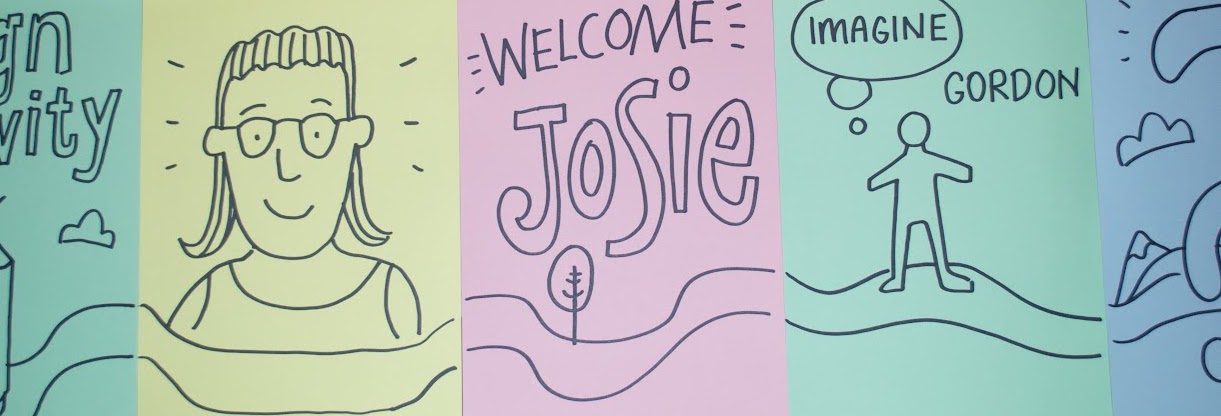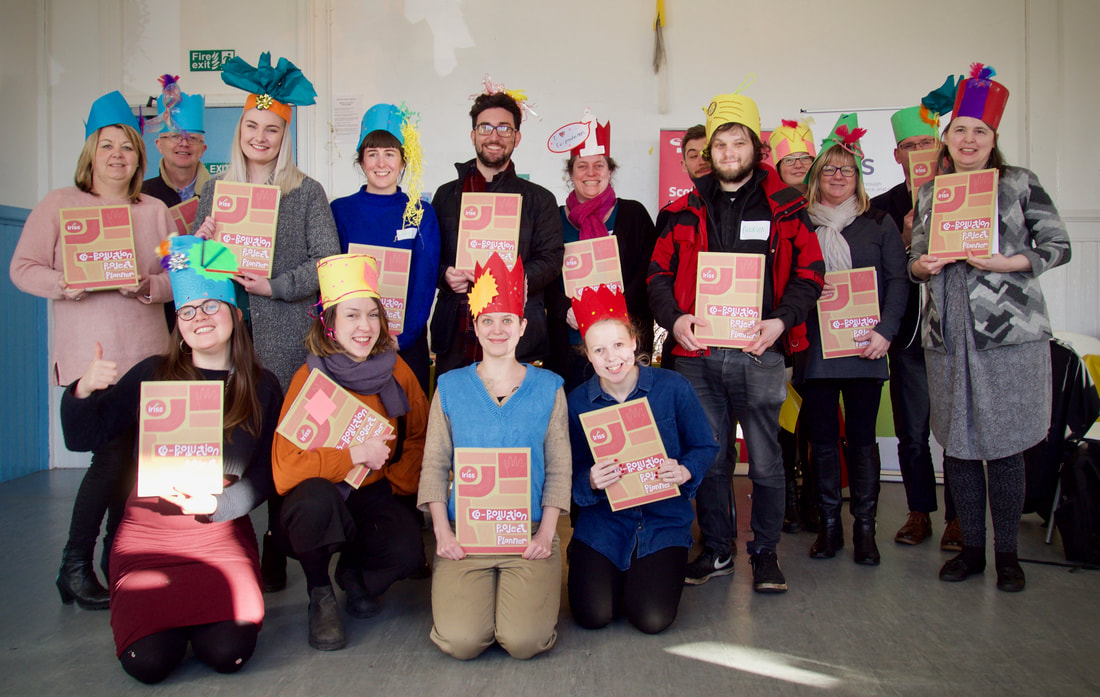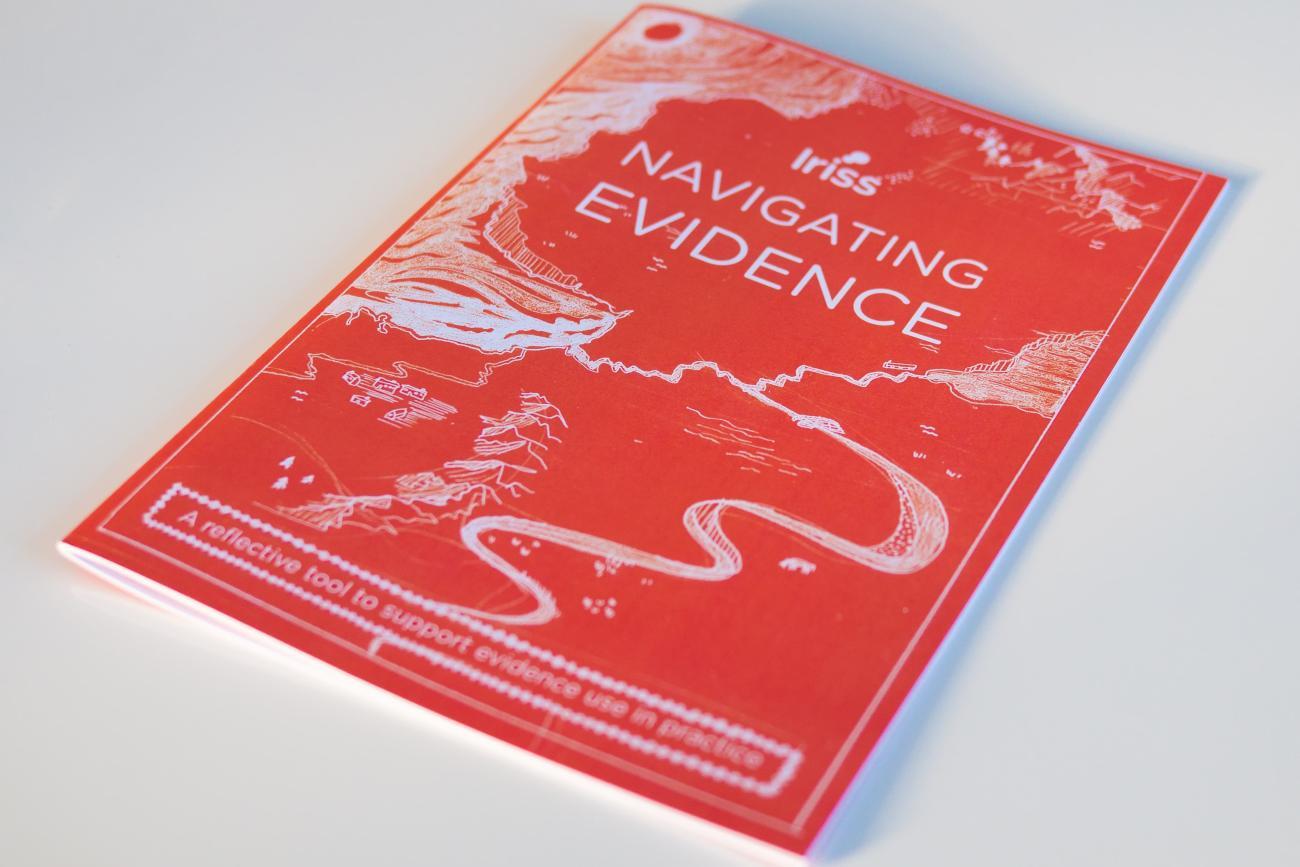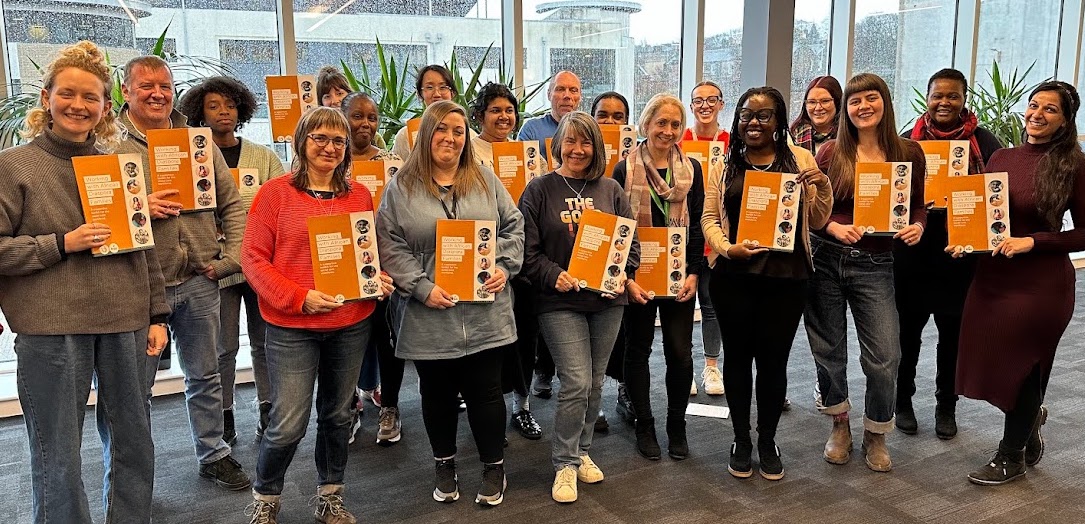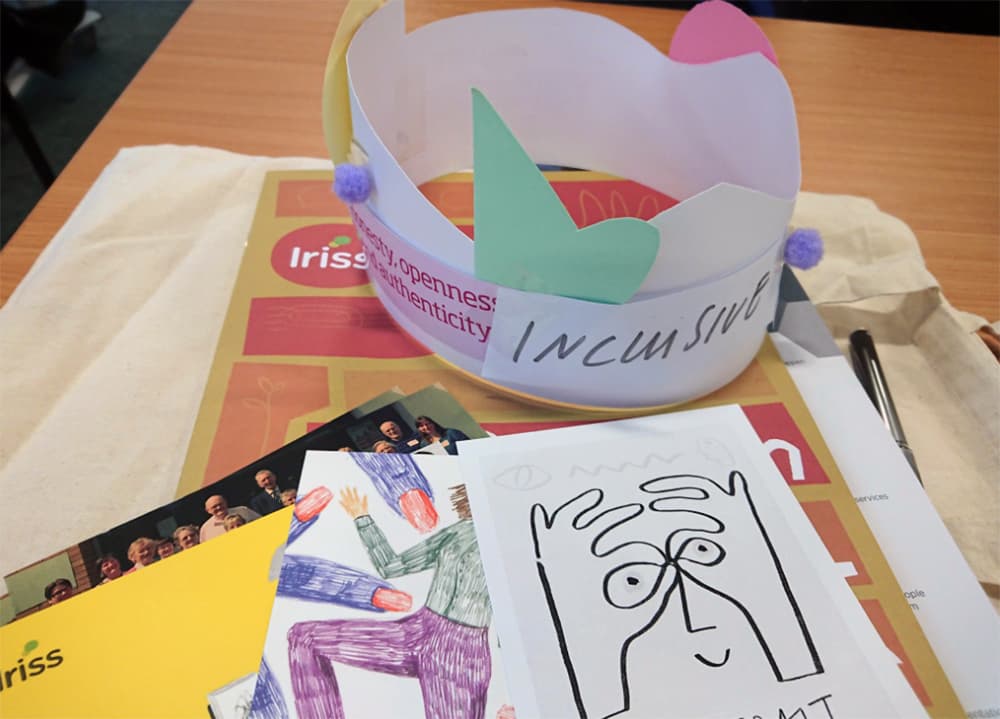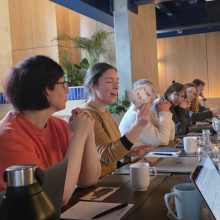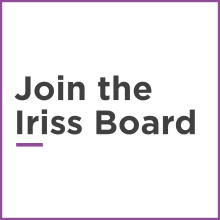Today is a big day for me, my last day working at Iriss. I wanted to spend some time reflecting on my journey with the organisation. I joined Iriss in 2016, when I had just graduated from my master's in Visual Communication, and I was full of naive enthusiasm for making change through design. I joined the team to support the delivery of a large-scale co-production project called Pilotlight.
What happened next was a slow and supported development of my skills and exposure to a whole range of different challenges. Getting my head around the social care sector in Scotland was one of my first hurdles, and I continue to learn about how this system works today.
Initially I worked closely with Judith Midgley on the Pilot Light Project. She instilled in me the values of co-production, and I saw first hand how much meticulous planning and careful communication went into developing the trust required to deliver effective co-production. She tirelessly rang round people, made sure that she was meeting everyone's needs, and thought ahead. Very far ahead. What she did was show me a best practice example of co-production that went on to inform my career.
Co-production is one of those things that feels like it's been around for a long time but is also still new to a lot of people. I'm glad that my work in Iriss gave me such a strong foundation in its principles, but also a sense of what the realistic applications of these principles look like. After this project finished, I started working on the Iriss co-production planner, where I brought together all of this learning in one cohesive toolkit. This piece of work led me to loads of interesting places, and I still reference it regularly.
I really enjoyed this translation of complex ideas and information into concrete resources and began developing other resources off the back of this experience. First of all, I created the Project Springboard tools which are still available and can help you get started on a project if you are feeling a little overwhelmed. I also saw that some of these techniques or ways of structuring thinking could be helpful to nearly qualified social workers. This led me to develop the Navigating Evidence tool, which helps people understand the breadth of evidence available to the newly qualified social worker and how these different types of evidence can be applied in practice.
One of the privileges that I've had in this role is the access I have had to work with people who are community activists and change makers. I think one of my standout moments across the last eight years was an event that we put together at the last minute to explore how cultural competency could be used to support social workers working with Scottish Gypsy Travellers. This event brought together music, research, ideas, and a sharing of self that is often missing in work place events. It felt like a real moment for potential change. In the last year, I have had the opportunity to work with more fantastic community partners developing our Working with African Diaspora Families toolkit with Passion4Fusion, which explores obstacles faced by African Diaspora families and the workforce, shedding light on potential solutions.
Over COVID, I began developing my interest in recording and written work in social care. This was a whole new world for me and opened up a new way of thinking. I was lucky to work with academic Theresa Lillis from The Open University, who brought her rigorous approach to understanding language to the table. It amazes me how something as simple as writing can be overlooked when actually it is such a core part of the day-to-day work of social workers and social care workers. Developing resources to support people to improve their writing, explore their emotional relationship with writing, and develop peer support to improve writing practice has been one of the most rewarding parts of working in Iriss.
I am so grateful to all of the social care and social work partners that have worked with me over the years, given their time and energy to developing work to make change in the way we write social care records. This year I have had the privilege of working with practitioners in Aberdeenshire, Aberdeen City and Falkirk Child Case Recording Group. I know I leave this work in good hands with my colleagues at Iriss who will continue to explore these themes, with a particular focus on chronologies and writing culture.
I feel so privileged to be able to have counted such a wide range of dedicated and passionate people as my colleagues and teammates. I'm looking forward to my next chapter, where I will be joining Social Security Scotland as a service designer, but I will miss the vibrancy, determination, creativity, and optimism of my colleagues and partners. I can't wait to see what Iriss goes on to do next, and I will be paying close attention to how Scotland's social care system is influenced and changed over the next few years. Thank you everyone!
